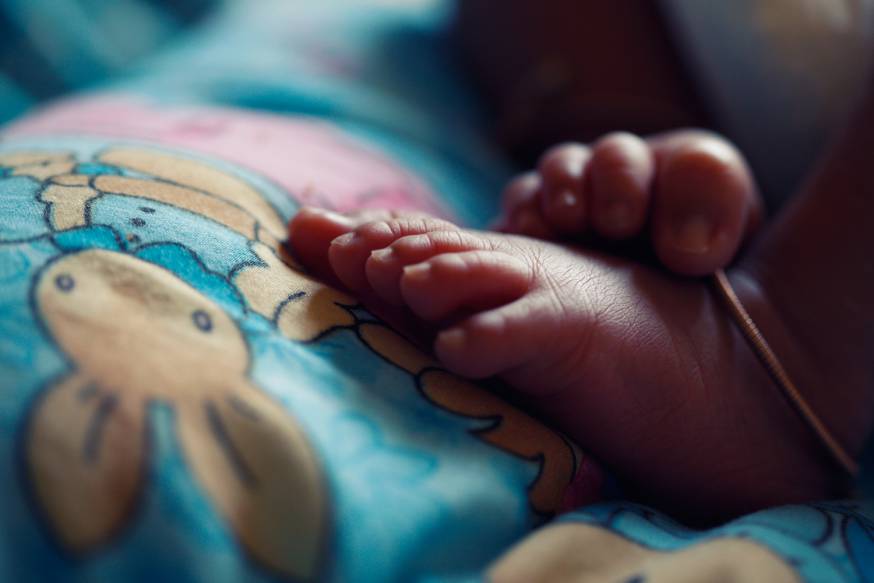
Another message in the parable of the mustard seed
Great things often begin with something small
BY Deacon Greg Kandra. October 1, 2016
The apostles said to the Lord, “Increase our faith.”
The Lord replied,
“If you have faith the size of a mustard seed,
you would say to this mulberry tree,
‘Be uprooted and planted in the sea,’ and it would obey you.
This gospel about the mustard seed is familiar to so many of us, and I think we all understand the larger point Jesus is trying to make – that even a little bit of faith can work wonders. That it can grow, and strengthen, and make possible miracles.
But there is something else here that is easy to overlook, another message worth remembering.
It is a reminder to us of how much God treasures those things that are small.
After all, He came to us as one who was small Himself – a helpless baby, without a home, in a forgotten corner of an occupied country.
He feels a special affinity for those things in this world that are weak. Overlooked. Neglected. Dismissed. Little.
I think of St. Therese of Lisieux, whose feast day we celebrate today – a young woman, barely more than a girl, who hid herself in a Carmelite convent and vowed to find her path to God through what she called her “Little Way.” She died at just 24 – and is hailed today not only as one of the most beloved saints, but as one of the greatest doctors of the Church.
Or consider the woman who took her name, Mother Teresa — now Saint Teresa of Calcutta — who dared to embrace and love those nobody else would even touch. She once said that while we may not all be able to do great things, we can all do small things with great love. That message has moved millions of all faiths – and even those of no faith – all over the world.
Great things often begin with something small. And, on this particular Sunday, when we are called to honor life, our hearts and minds are drawn to those who are the smallest of all. Those who are often dishonored, and even discarded.
Those who are – literally — the size of a mustard seed.
Science tells us that at five weeks, an embryo is roughly the size of the tip of a pen – only a little bit smaller than a mustard seed.
And yet, its life story is already beginning to be told.
Its heart has already started the great work of a lifetime. It’s begun to beat. And beat. And beat. Across an average lifespan, the human heart will beat three billion times. In a five-week-old embryo, it’s only getting started.
But so is everything else. The baby’s facial features are starting to form: the eyes, the nose, the lips. Eyes that will watch the leaves change and the sun rise. The nose that will smell burning leaves and fresh baked bread. The lips that will smile and one day whisper, “I love you.”
The passageways of its inner ear are taking shape – to hear the sound of music, or the laughter of a child, or the call of seagulls on a beach.
Small limbs are forming – arms to hold, and legs to run.
At five weeks, the brain is beginning to develop – a mind that will solve problems, or write poetry.
And yet: that life — that remarkable, miraculous, incomparable life — is not much larger than a mustard seed. It may be, at most, the size of a pencil eraser.
And that small life, imperceptible and maybe even unknown, is loved by God. It has a spark of the divine. It carries with it the potential to one day build towers, span rivers, compose symphonies. There is a purpose to its being, even in being so small. As Houston’s Cardinal Daniel DiNardo once wrote: “Every human being, at every stage and condition, is willed and loved by God. For this reason, every human life is sacred.”
Over the last four decades, we have all heard so many reasons for standing in opposition to abortion. Let me add my own.
It is, quite simply, because it strikes so deeply at the heart of God. It disrupts His divine act of creation, ripping it from His hands, throwing it to the ground. And it does this to those for whom He feels a special closeness – the weak, the struggling, the defenseless, the small.
The fact is: every life carries possibility, and hope.
As Catholic Christians, it is our responsibility to proclaim that hope to the world – to respect life as the sacred gift that it is, in all its forms, in all its stages. To pray for life. To nurture it. To act as collaborators with God, to help His work come into the world, and continue.
And to do that with even the tiniest mustard seed of faith — trusting, somehow, in God’s will.
If we do that, who knows what miracles might happen?
Who knows what mulberry trees we might be able to move?
…………………………………………………
Deacon Greg Kandra is a Roman Catholic deacon in the Diocese of Brooklyn, New York. For nearly three decades, he was a writer and producer for CBS News, where he contributed to a variety of programs and was honored with every major award in broadcasting. Deacon Greg now serves as Multimedia Editor for Catholic Near East Welfare Association (CNEWA.) He and his wife live in Forest Hills, New York.

0 Comments